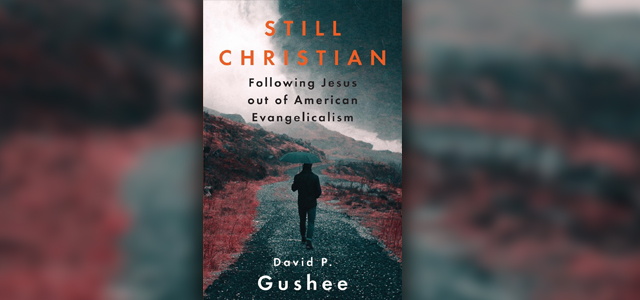Review: Still Christian – Following Jesus out of American Evangelicalism,
Author: David Gushee
High profile Christian ethicist David Gushee’s small memoir is about what it means to follow Jesus’ teaching while dealing with the ‘politically captive condition of Christianity in America’, as he calls it in another book. It is a more personal look at issues also covered in Frances Fitzgerald’s recent massive survey of American evangelicalism.
Gushee was a lapsed Catholic who was born again in his teens after following a girlfriend into a Baptist church. Called to the ministry, he was educated at Southern Baptist Theological Seminary, an evangelical citadel. The seminary was at the time pulling up the drawbridge, as it was ‘ground zero’ for the takeover of the Southern Baptists by fundamentalist forces, part of the wider culture wars which saw Republicans roping in evangelicals with the aim of making the two indistinguishable.
He took up further study at Union Theological Seminary in New York, which was the other pole, being heavily focussed on liberation theology. As a white male, Gushee, privileged elsewhere, found himself challenged at UTS to walk in the shoes of the marginalised. He wrote about Christians and the holocaust and was subsequently employed and mentored by Ron Sider, the evangelical critic of rich Christians.
As ‘every liberal’s favourite evangelical’ Gushee became known for advocating policies to tackle climate change and for opposition to the US government’s use of torture, in an era of climate change deniers and, alarmingly, strong support for torture amongst US Christians. Over this latter issue his exasperation is palpable and it is to his credit that he retains his sense of humour.
This, however, was nothing compared to the ‘evangelical nuclear winter’ that descended upon him when, after much soul-searching and Bible study, he came out in support of same-sex unions, which made him ‘every evangelical’s least-favourite liberal’. Gushee’s stance was deeply considered, but this didn’t seem to matter in a polarised America where since the 1970s ‘Christian’ has meant Right, and secular, Left, and one needed to make a choice. There was no third option for Christians.
Except that there was, and critics such as Ron Sider and Jim Wallis questioned the automatic equating of evangelicals with conservatives. Only more recently, due to the likes of Gushee, Rick Warren and others has the glue between Christians and conservatives started to fail, over issues such as economic inequality and environmental destruction. (While the Trump election seemed to indicate a new application of glue.)
Gushee’s conclusions on the present state of evangelical American Christianity are sobering, but they shouldn’t be surprising, as it is always a tough job to live out Christian ethics, even and sometimes especially in the midst of Christianity.
Nick Mattiske






